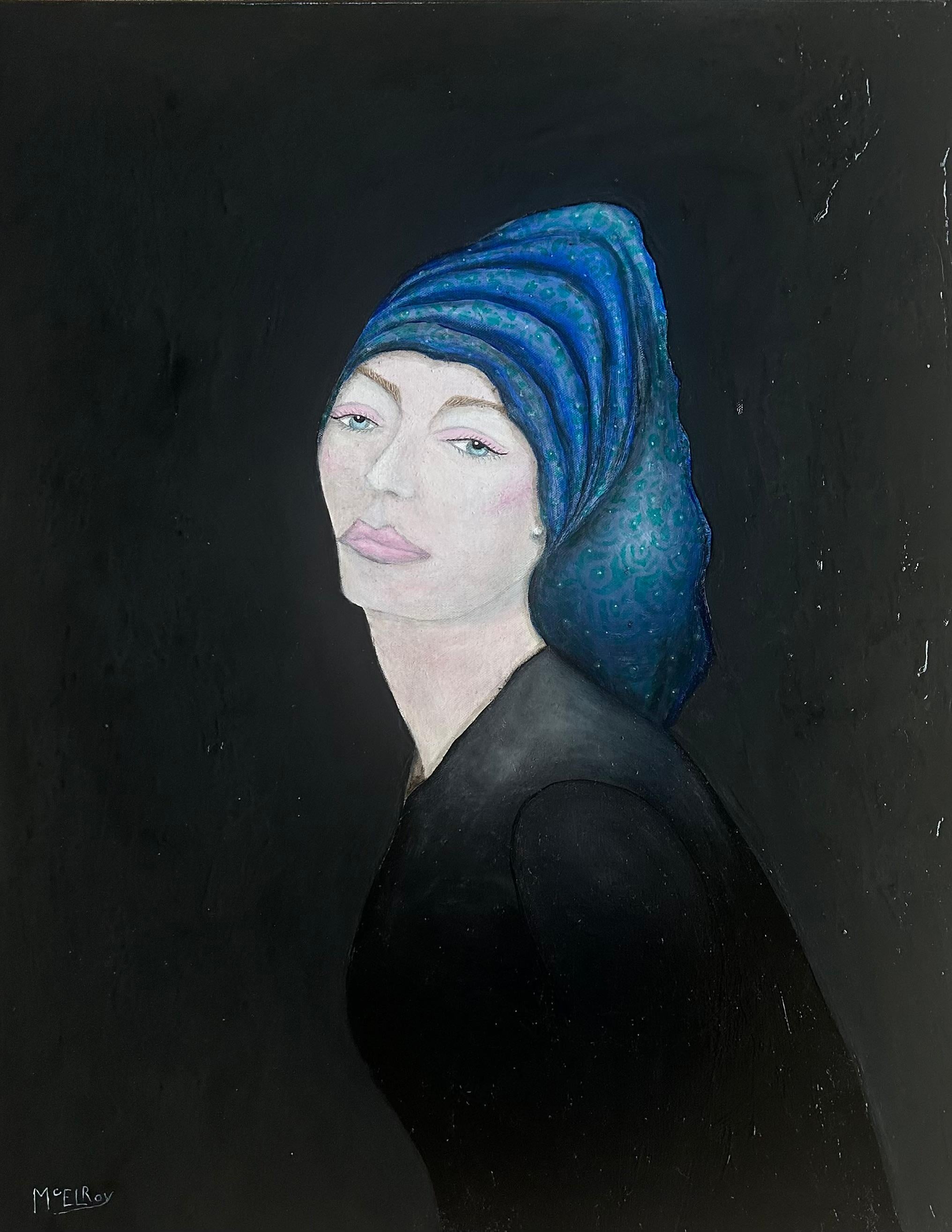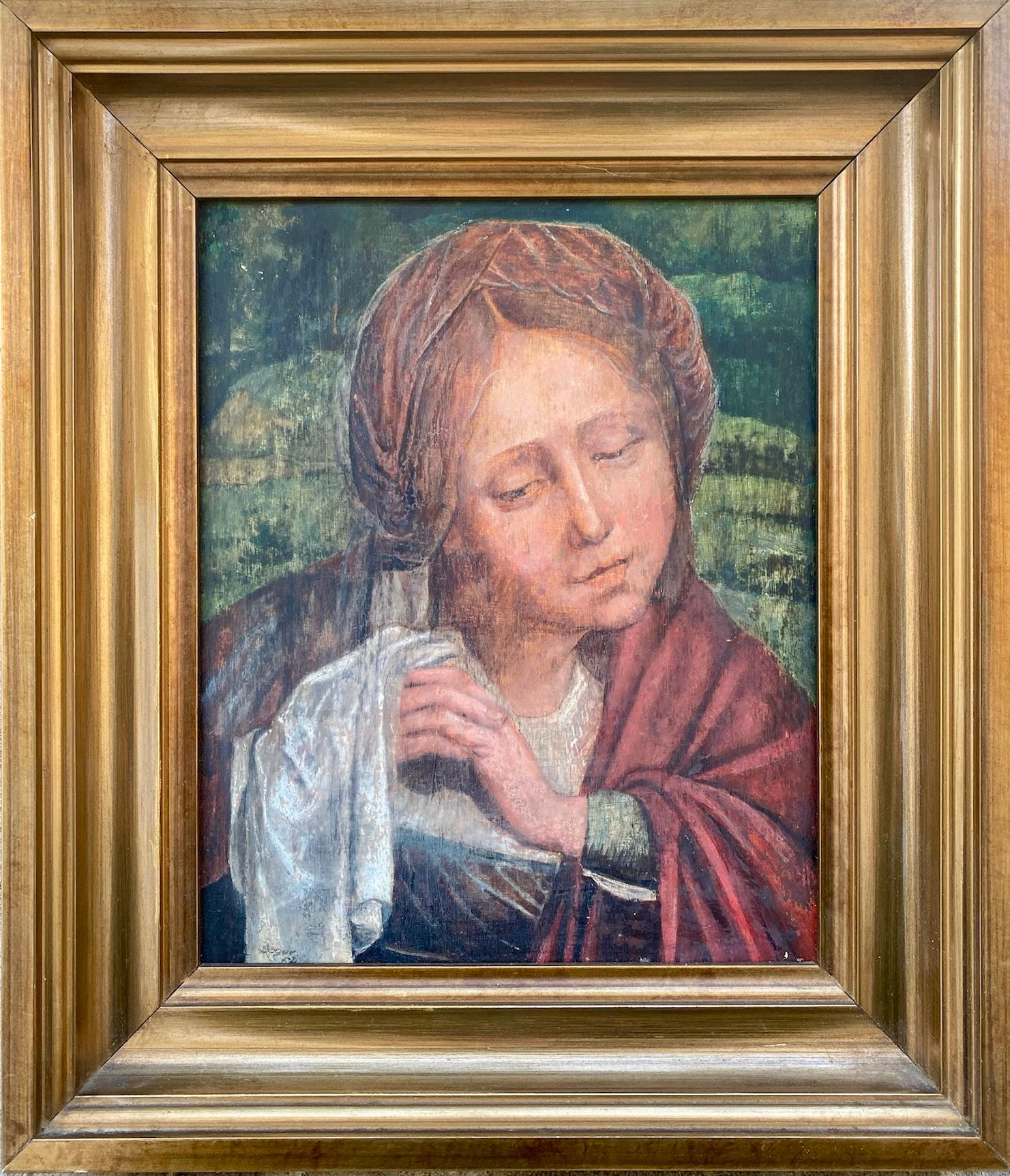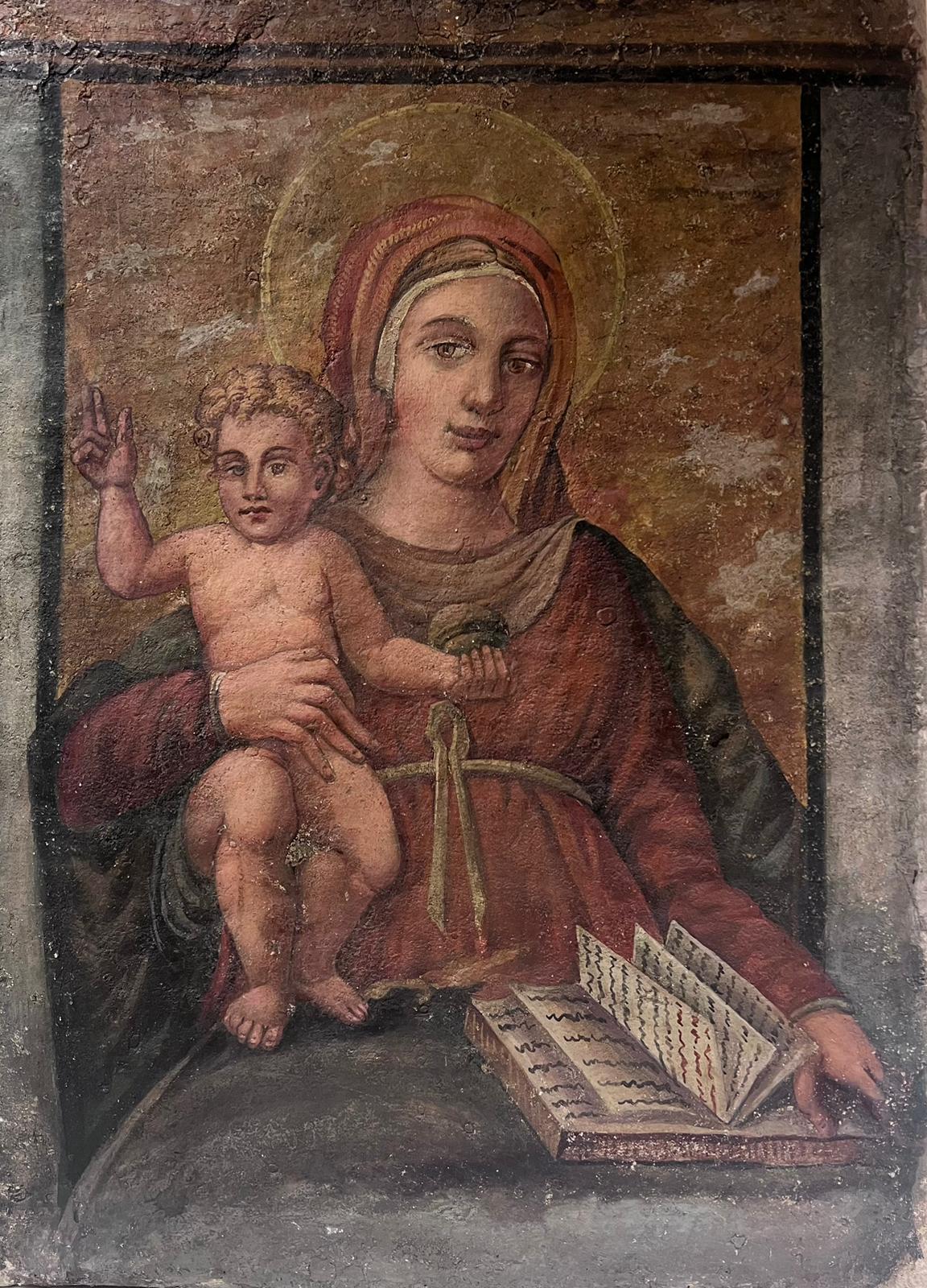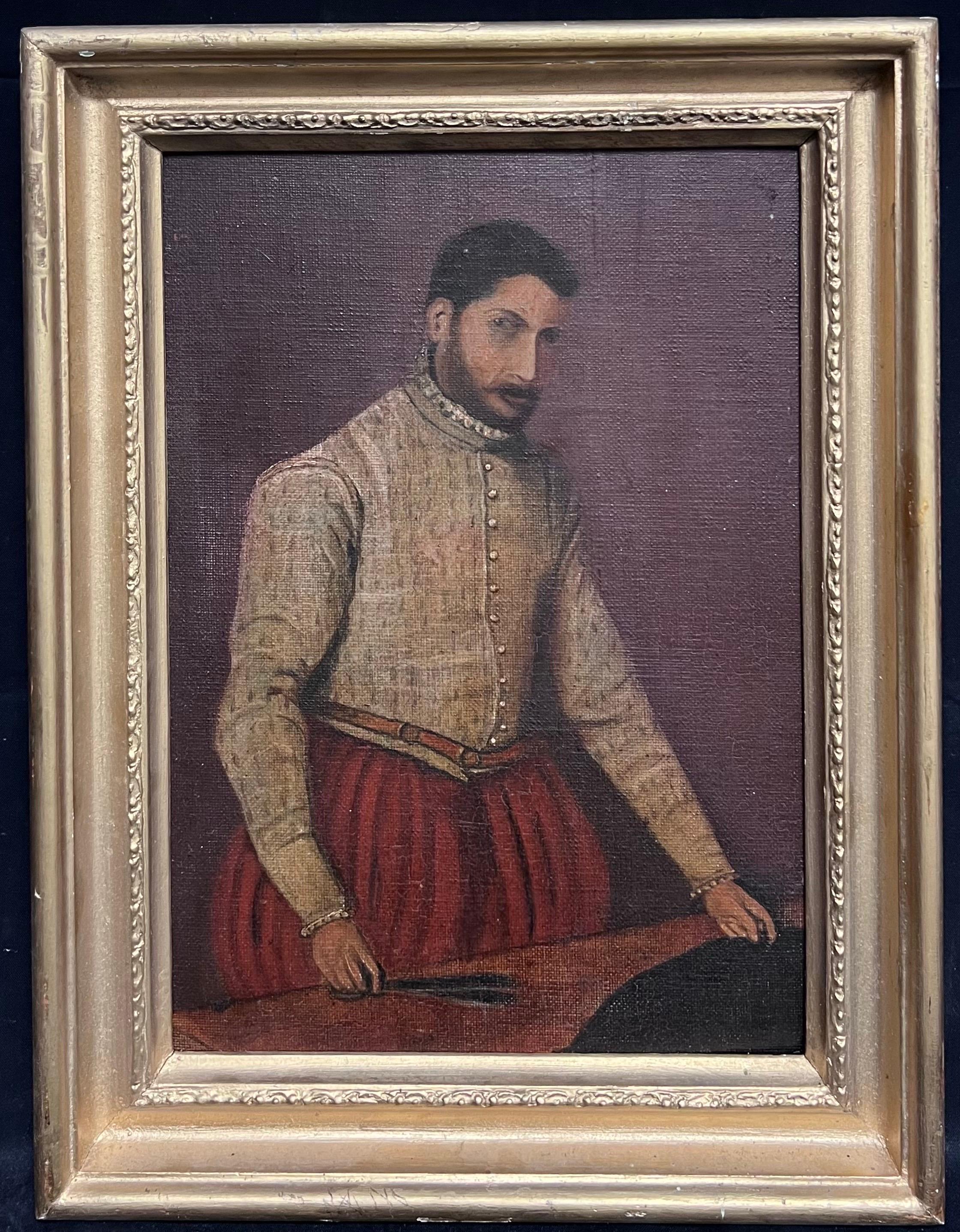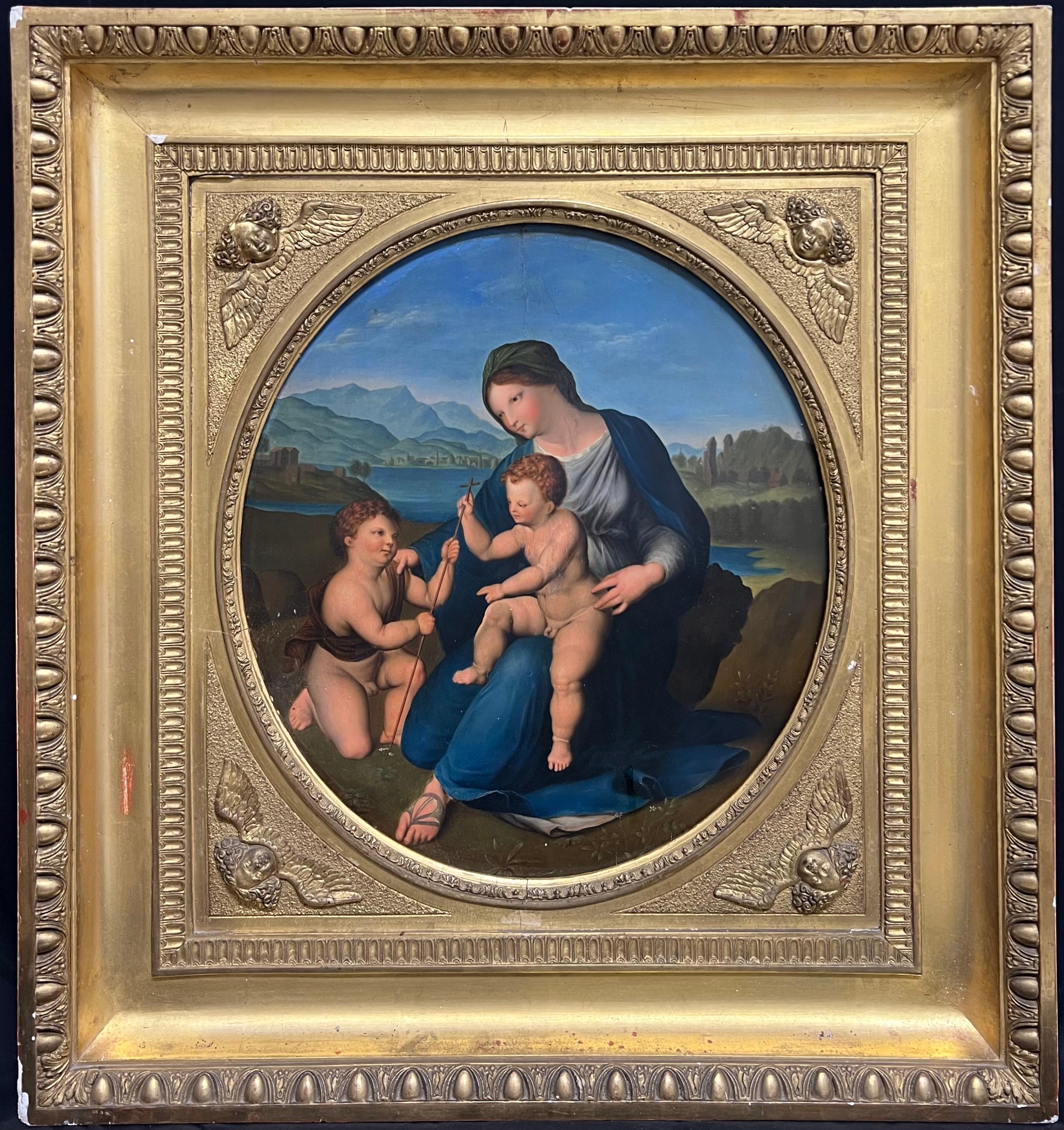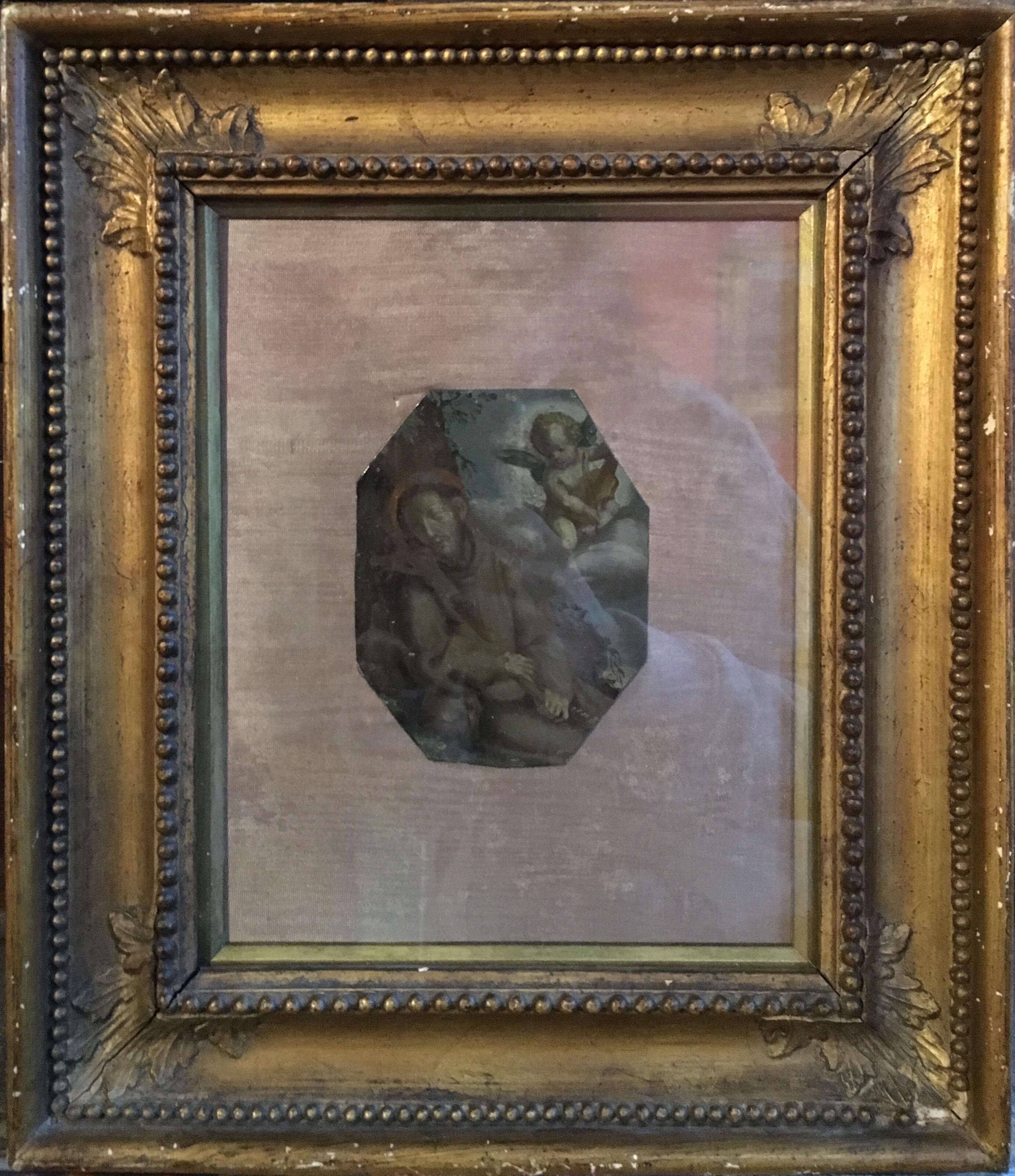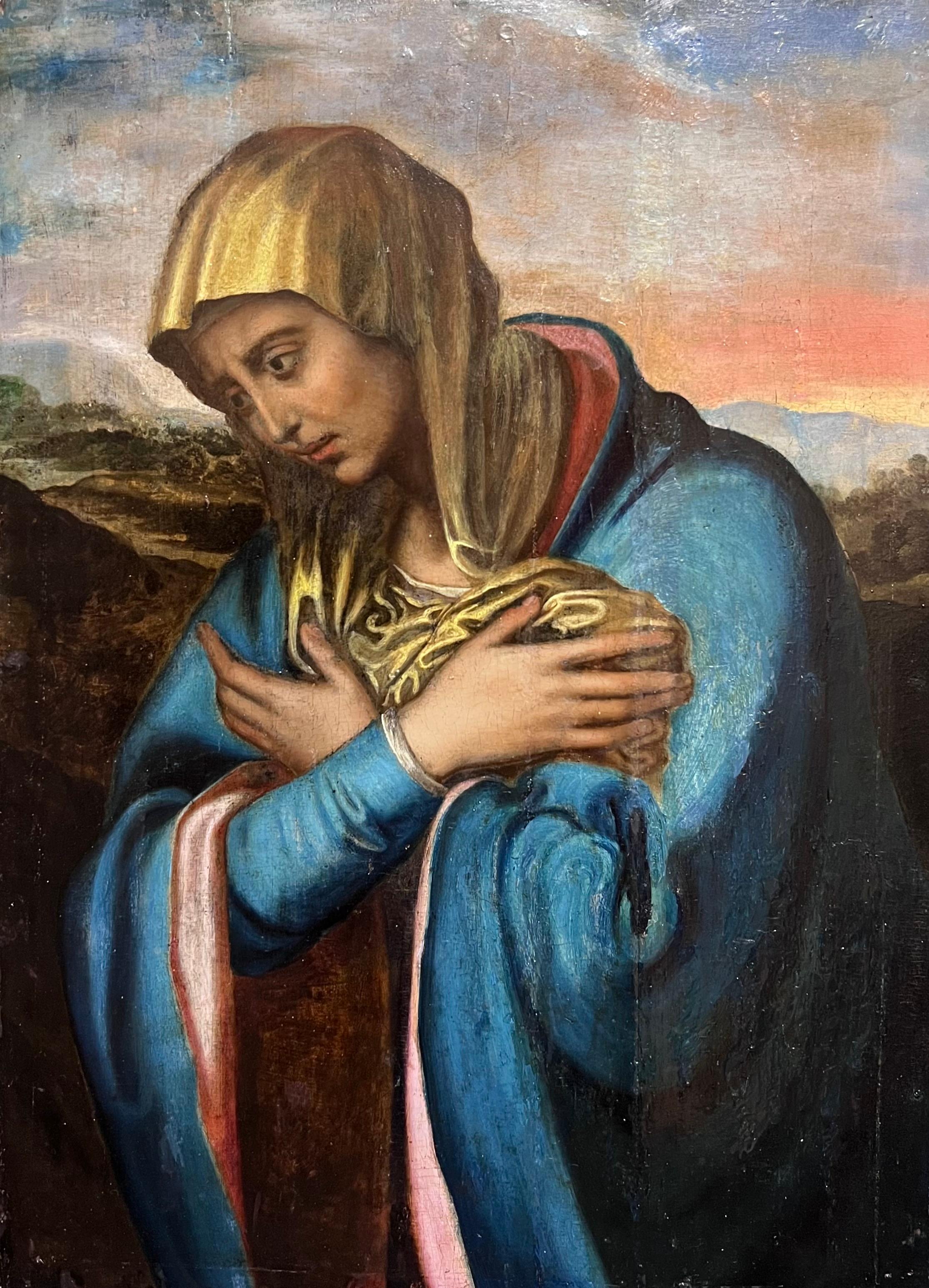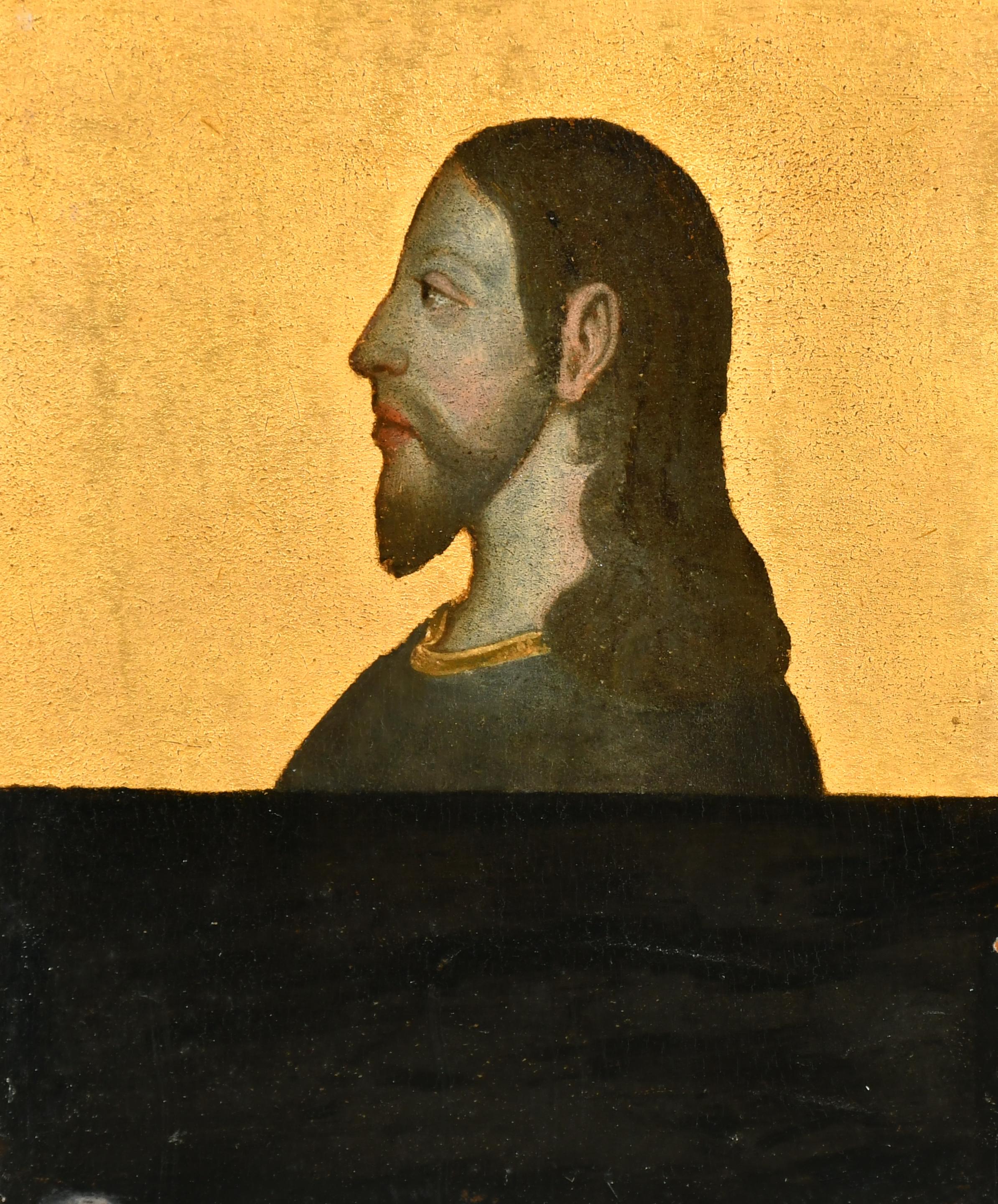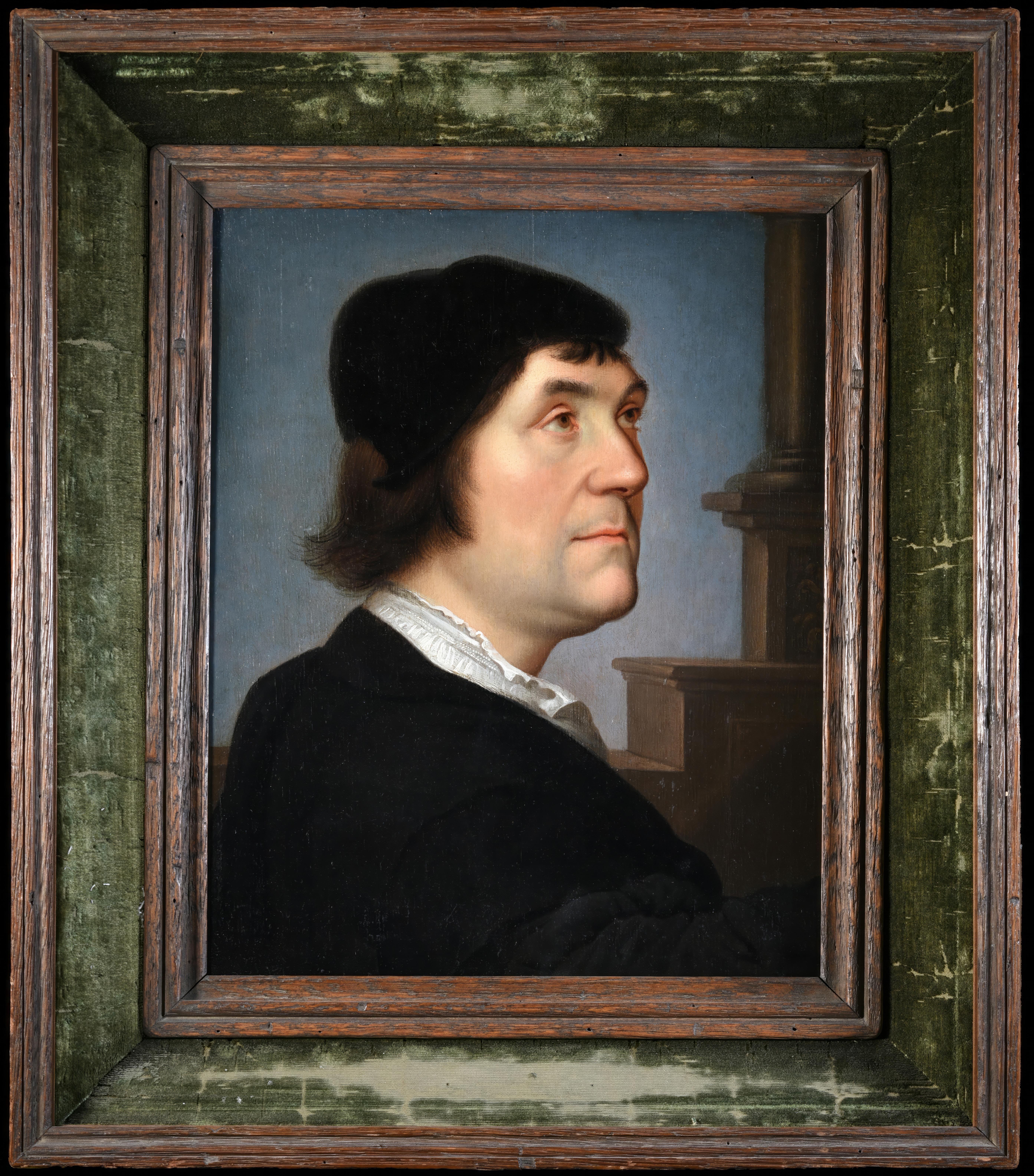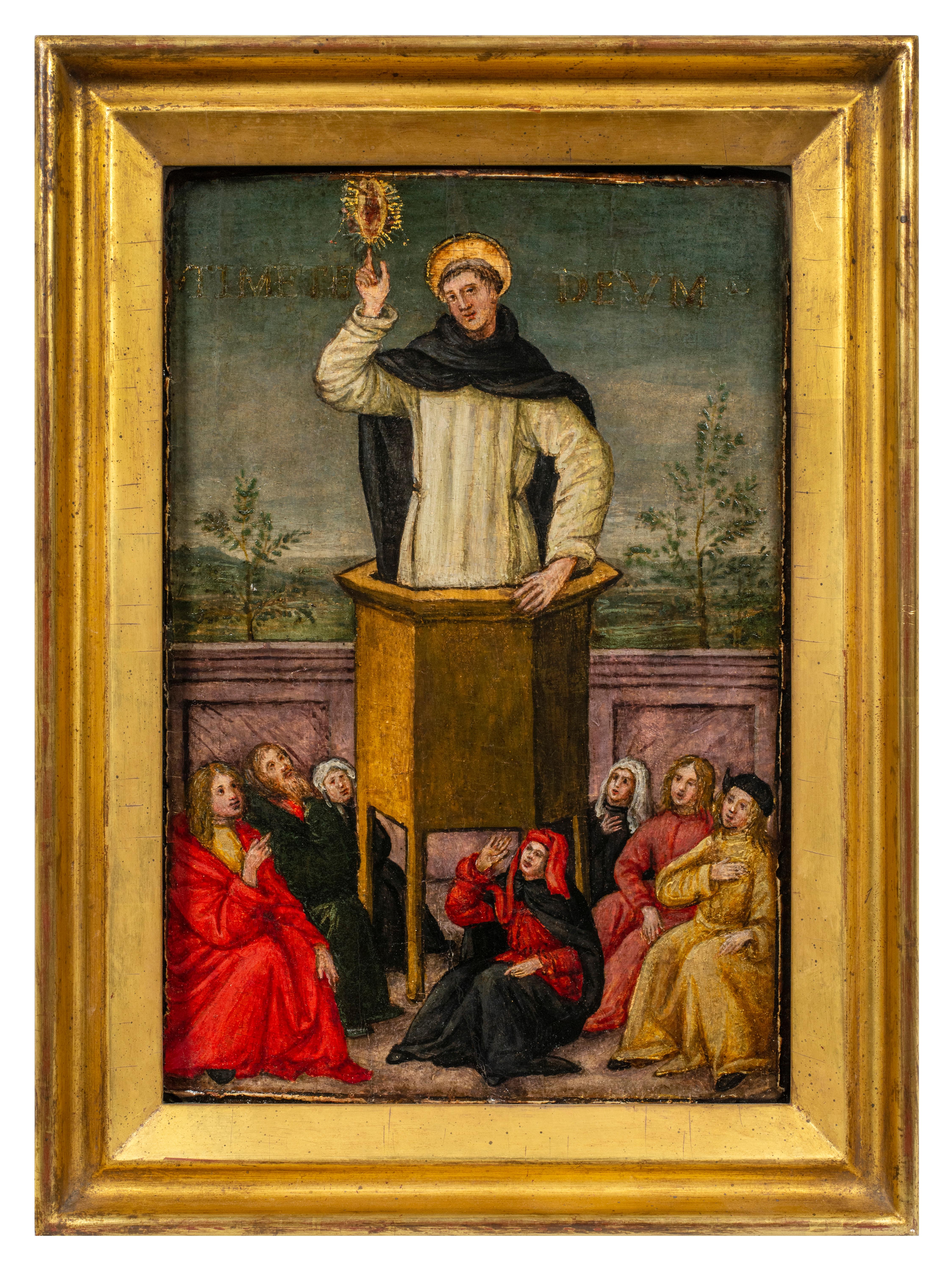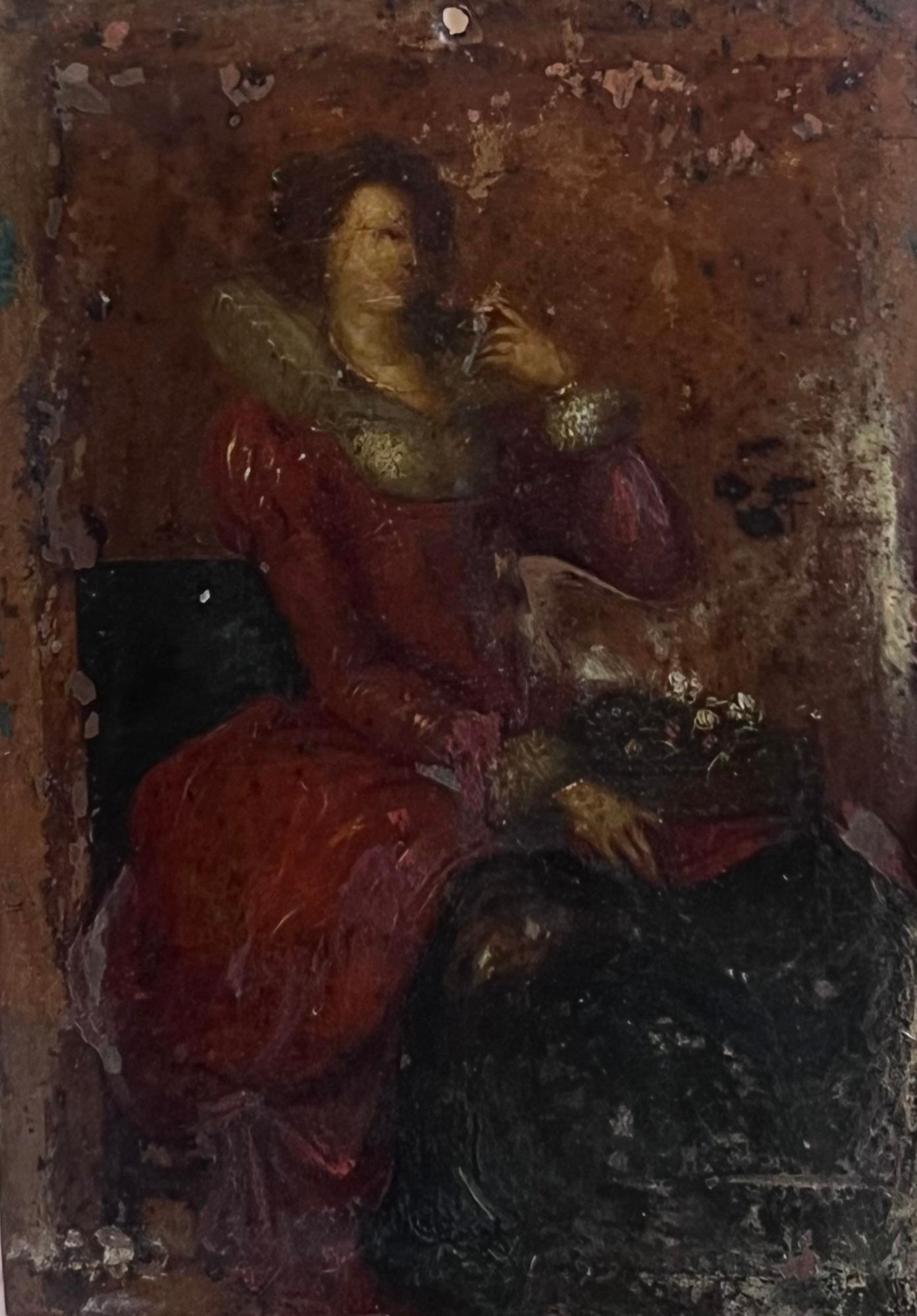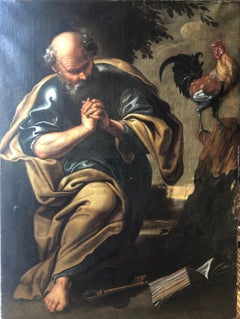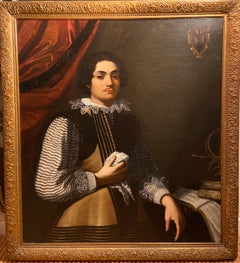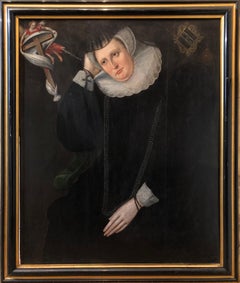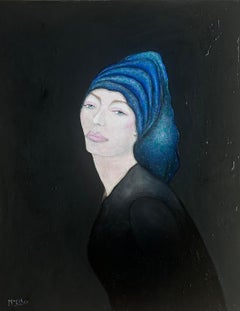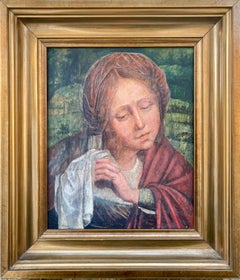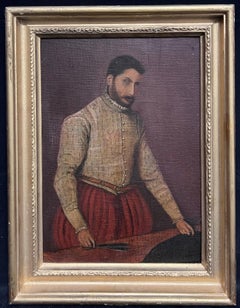
Renaissance Old Master Portrait of a Young Bearded Man
View Similar Items
Want more images or videos?
Request additional images or videos from the seller
1 of 13
Vittore BellinianoRenaissance Old Master Portrait of a Young Bearded Man1521
1521
About the Item
- Creator:Vittore Belliniano (1456 - 1529, Italian)
- Creation Year:1521
- Dimensions:Height: 21 in (53.34 cm)Width: 18.5 in (46.99 cm)
- More Editions & Sizes:UniquePrice: $439,340
- Medium:
- Movement & Style:
- Period:
- Condition:
- Gallery Location:London, GB
- Reference Number:1stDibs: LU67335245382
About the Seller
5.0
Platinum Seller
Premium sellers with a 4.7+ rating and 24-hour response times
Established in 1990
1stDibs seller since 2017
42 sales on 1stDibs
Typical response time: 5 hours
Authenticity Guarantee
In the unlikely event there’s an issue with an item’s authenticity, contact us within 1 year for a full refund. DetailsMoney-Back Guarantee
If your item is not as described, is damaged in transit, or does not arrive, contact us within 7 days for a full refund. Details24-Hour Cancellation
You have a 24-hour grace period in which to reconsider your purchase, with no questions asked.Vetted Professional Sellers
Our world-class sellers must adhere to strict standards for service and quality, maintaining the integrity of our listings.Price-Match Guarantee
If you find that a seller listed the same item for a lower price elsewhere, we’ll match it.Trusted Global Delivery
Our best-in-class carrier network provides specialized shipping options worldwide, including custom delivery.More From This Seller
View AllPortrait of an Italian Noblewoman
Located in London, GB
15th century, Italian
Circle of Antonio del Pollaiuolo (1429-1498)
Portrait of an Italian Noblewoman
Oil and tempura on poplar panel
With partial inscription: ALZETAPIN
Provenance:...
Category
15th Century and Earlier Renaissance Portrait Paintings
Materials
Oil, Tempera, Wood Panel
Large Beautiful Early 17th Century Painting of St Peter
Located in London, GB
17th Century Italian School
St Peter
Oil on Canvas
55 1/2 x 41 inches
This large and tender rendering of Saint Peter was painted by the hand of great Italian painter of the 17th Cen...
Category
Early 17th Century Baroque Portrait Paintings
Materials
Oil
17th Century Italian Oil Painting Portrait of Music Prodigy Girolamo Frescobaldi
Located in London, GB
Portrait of Girolamo Frescobaldi (1583-1643)
Attributed to Antiveduto Della Grammatica (1571-1626)
Oil on Canvas
1605-1609
Framed in a Nineteenth Century gild and composite frame
44....
Category
Early 17th Century Baroque Figurative Paintings
Materials
Oil
Lady Dormore - A 16th Century Portrait of a key member of Shakespeare's England
Located in London, GB
Lady Dormer, Mary Browne
c. 1592
oil on panel
35 x 29 inches, unframed;
41 x 34.75 inches, inc. frame
Inscribed 'Lady Dormore'
Mary married Henry Wriothesley, 2nd Earl of Southampton who gave birth to Henry Wriothesley, 3rd Earl of Southampton - one of the great figures in Shakespears"s circle and founder of the Virginia company, developers of Virginia USA.
Henry Wriothesley, born 6 October 1573 at Cowdray House, Sussex, was the only son of Henry Wriothesley, 2nd Earl of Southampton, by Mary Browne, the only daughter of Anthony Browne, 1st Viscount Montague, and his first wife, Jane Radcliffe.[5] He had two sisters, Jane, who died before 1573, and Mary (c. 1567 – 1607), who in June 1585 married Thomas Arundell, 1st Baron Arundell of Wardour.[6]
After his father's death, Southampton's mother married firstly, on 2 May 1595, as his second wife, Sir Thomas Heneage (d. 17 October 1595), Vice-Chamberlain of the Household, and secondly, between 5 November 1598 and 31 January 1599, Sir William Hervey. She died in November 1607.[7]
Early life
When his father died on 4 October 1581 Southampton inherited the earldom and landed income valued at £1097 6s per annum. His wardship and marriage were sold by the Queen to her kinsman, Charles, Lord Howard of Effingham, for £1000. According to Akrigg, Howard then "entered into some further agreement, of which no documentation can now be found, which transferred to Lord Burghley personally the custody and marriage of the young Earl, but left Howard holding his lands", and late in 1581 or early in 1582 Southampton, then eight years of age, came to live at Cecil House in the Strand.[8]
In October 1585, at age twelve, Southampton entered St John's College, Cambridge,[9] graduating M.A. on 6 June 1589.[10] His name was entered at the Gray's Inn legal society before he left the university, and he was admitted on 29 February 1588.[11]
On Southampton's 16th birthday, 6 October 1589, Lord Burghley noted Southampton's age in his diary, and by 1590 Burghley was negotiating with Southampton's grandfather, Anthony Browne, 1st Viscount Montague, and Southampton's mother, Mary, for a marriage between Southampton and Lord Burghley's eldest granddaughter, Elizabeth Vere, daughter of Burghley's daughter, Anne Cecil, and Edward de Vere...
Category
16th Century Old Masters Figurative Paintings
Materials
Oil
Double Portrait Oil Painting Brothers George, 2nd Duke Buckingham & Lord Francis
By (After) Anthony Van Dyck
Located in London, GB
Aftrer Anthony VAN DYCK - maybe Studio (1599, Antwerp – 1641, London) Flemish
Double Portrait of George Villiers, 2nd Duke of Buckingham (1628-1687) & Lord Francis Villiers (1629-1648)
Oil on Canvas
170 x 147 cm
Anthony Van Dyck (1599-1641)
No painter has done more to define an era than Anthony van Dyck. He spent only seven and a half years of his short life (1599- 1641) in England. He grew up in Antwerp, where his precocious talent was recognised by Peter Paul Rubens, the greatest painter of his age. He worked in Rubens’s studio and imitated his style as a religious artist, painting biblical scenes redolent of the lush piety of the counter-reformation. But soon he was on the move. In 1620, he visited London for a few months, long enough to paint a history picture, The Continence of Scipio, for the royal favourite, George Villiers, Marquess of Buckingham, and a portrait of his other English patron, the great art collector, Thomas Howard, 2nd Earl of Arundel.
After a stint in Italy, making imposing portraits of the wealthy aristocracy and sketching and copying works by Titian, he returned to the Spanish Netherlands in 1627, becoming court artist to Archduchess Isabella before departing for The Hague in 1631 to paint the Dutch ruler Frederick Henry, Prince of Orange. Charles I’s invitation in 1632 led Van Dyck back to London where he was knighted, paid an annual salary of £200 and installed in a house in Blackfriars with a special jetty at which the royal barge might tie up when the King was visiting his studio. By this time Van Dyck was recognised as the leading court painter in Europe, with Velazquez at the court of Philip IV of Spain his only rival. He also excelled as a superbly observant painter of children and dogs.
Van Dyck’s notoriety in depicting children led to the introduction of groups of children without their parents as a new genre into English painting (amongst other new genres).
For the next 300 years, Van Dyck was the major influence on English portraiture. Nearly all the great 18th Century portraitists, from Pompeo Batoni and Allan Ramsay to Thomas Gainsborough and Joshua Reynolds, copied Van Dyck’s costumes, poses and compositions.
George Duke of Buckingham & his brother Francis Villiers
Painted in 1635, this double portrait was originally commissioned by Charles I, who raised the two brothers after their father, George Villiers, was assassinated in 1628. Together with their sister, Lady Mary Villiers, they enjoyed the King’s favour absolutely. Francis whose absolute ‘inimitable handsomeness’ was noted by Marvell (who was killed in a skirmish near Kingston upon Thames). The young duke who commanded a regiment of horse at the Battle of Worcester, remained closely associated with Charles II, held a number of high offices after the Restoration and was one of the most cynical and brilliant members of the King’s entourage, immortalised as ‘Zimri’ in Dryden’s Absalom and Achitopbel. As a young man he had sold his father’s great collection of pictures in the Spanish Netherlands, many of them to the Archduke Leopold Willhelm.
Painted for Charles I and placed near the portrait of their sister in the Gallery at St James’ Palace. The handling of both costumes is very rich, and the heads are very carefully and sensitively worked. That of the younger boy in particular is more solidly built up than the lower part of the figure. A preparatory drawing for the younger boy is in the British Museum.
There are copies at, e.g., Highclere Castle...
Category
17th Century Old Masters Portrait Paintings
Materials
Oil
17th Century Oil Painting Portrait of a Young English Boy
By Gerard Soest
Located in London, GB
Gerard SOEST (1600 - 1681)
Portrait of a Young Boy
oil on canvas
35.5 x 30.5 inches inc. frame
Gerard Soest (circa 1600 – 11 February 1681), also known as Gerald Soest, was a portra...
Category
17th Century Old Masters Portrait Paintings
Materials
Oil
You May Also Like
Original abstract oil painting by prominent searchable artist Steve McElroy.
By Steve McElroy
Located in Dallas, TX
"Girl with the Hermes Scarf" by Steve McElroy. Oil on canvas, 22 x 28 inches, painted 2025. This is the original painting!
Beautiful archival quality limited edition of 50 hand ...
Category
2010s Renaissance Figurative Paintings
Materials
Canvas, Oil
Holy Woman, after Quentin Matsys penitent Saint Magdalene master copy
Located in Norwich, GB
A stunning copy of the Northern Renaissance masterpiece "Maddalena Dolente" by Quentin Matsys (1466-1530) which is in the collection of the Gemäldegalerie Berlin. Beautifully execut...
Category
Mid-20th Century Northern Renaissance Figurative Paintings
Materials
Oil, Wood Panel
Renaissance Style Italian Old Master Painting Madonna & Child Tender Embrace
Located in Cirencester, Gloucestershire
19th/ early 20th Century Italian School
Madonna and Child
oil painting on canvas, unframed
canvas: 32 x 24 inches
provenance: private collection, UK
co...
Category
Late 19th Century Renaissance Portrait Paintings
Materials
Oil
Italian Renaissance Gentleman Portrait of a Tailor Antique Oil Painting
Located in Cirencester, Gloucestershire
The Tailor
Continental School, 19th century
after the earlier Renaissance work by Giovanni Battista Moroni (16th century).
oil on canvas laid over board, framed
Framed: 16 x 12 inch...
Category
19th Century Renaissance Portrait Paintings
Materials
Oil
18th Century Italian Oil Madonna & Child with St. John the Baptist after Raphael
Located in Cirencester, Gloucestershire
Madonna and Child with St. John the Baptist
Italian artist, 18th century, after the earlier painting by Raphael
oil on wood panel, framed in an Empire, gilt moulded frame
Framed: 23 ...
Category
18th Century Renaissance Figurative Paintings
Materials
Oil
Guardian Angel, 17th century Italian Old Master oil on copper
Located in Cirencester, Gloucestershire
Guardian Angel
Italian School, 17th century
Oil painting on copper, framed
Framed size: 12 x 10.5 inches
Fine quality early Italian Old Master oil on copper panel, dating to the 17t...
Category
17th Century Renaissance Portrait Paintings
Materials
Oil
